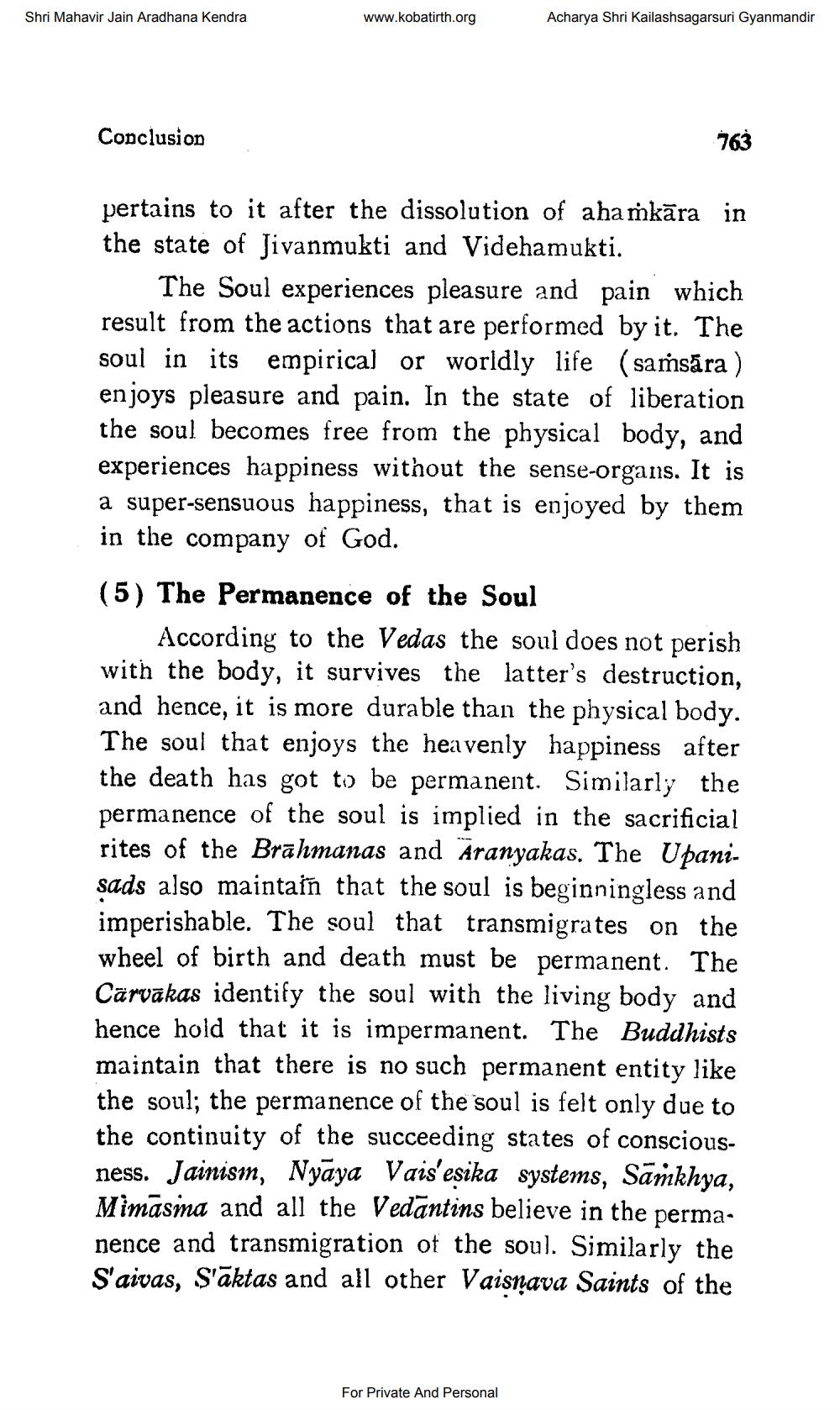________________
Shri Mahavir Jain Aradhana Kendra
Conclusion
www.kobatirth.org
Acharya Shri Kailashsagarsuri Gyanmandir
763
pertains to it after the dissolution of ahaṁkāra in the state of Jivanmukti and Videhamukti.
The Soul experiences pleasure and pain which result from the actions that are performed by it. The soul in its empirical or worldly life (samsāra) enjoys pleasure and pain. In the state of liberation the soul becomes free from the physical body, and experiences happiness without the sense-organs. It is a super-sensuous happiness, that is enjoyed by them in the company of God.
For Private And Personal
(5) The Permanence of the Soul
According to the Vedas the soul does not perish with the body, it survives the latter's destruction, and hence, it is more durable than the physical body. The soul that enjoys the heavenly happiness after the death has got to be permanent. Similarly the permanence of the soul is implied in the sacrificial rites of the Brahmanas and Aranyakas. The Upanisads also maintain that the soul is beginningless and imperishable. The soul that transmigrates on the wheel of birth and death must be permanent. The Carvākas identify the soul with the living body and hence hold that it is impermanent. The Buddhists maintain that there is no such permanent entity like the soul; the permanence of the soul is felt only due to the continuity of the succeeding states of consciousness. Jainism, Nyaya Vais'eṣika systems, Samkhya, Mimasma and all the Vedantins believe in the permanence and transmigration of the soul. Similarly the S'aivas, S'aktas and all other Vaisnava Saints of the




